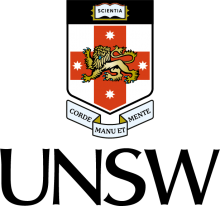UNSW Sydney has bucked trends in Australian university leadership recruitment by poaching the boss of a neighbour to be its next vice-chancellor.
Attila Brungs, who heads the nearby University of Technology Sydney (UTS), will take over at UNSW when incumbent Ian Jacobs steps down in January.
Chancellor David Gonski said that it would be a homecoming for the Oxford-educated industrial chemist who studied science at UNSW before winning a Rhodes Scholarship. “We are not only welcoming our 10th president and vice-chancellor,” Mr Gonski said. “We are welcoming back an eminent alumnus and member of the UNSW family.”
The appointment is a departure from type for Australian universities, which have tended to recruit leaders from outside academia or outside the country. Incoming University of Sydney vice-chancellor Mark Scott, whose appointment was announced in March, is a civil service leader and former journalist with no academic experience.
Two of the three most recently installed Australian vice-chancellors – the University of Wollongong’s Patricia Davidson and Curtin University’s Harlene Hayne – came from the US and New Zealand respectively. The third, Charles Darwin University’s Scott Bowman, is a Briton who previously ran Central Queensland University.
Professor Brungs said that he was excited to join UTS’ crosstown rival during “one of the most challenging periods for higher education in Australia”, and that his appointment “provides an opportunity to increase collaboration across NSW universities for the benefit of our whole state”.
UNSW and UTS share a common antecedent, with both evolving from the 19th-century Sydney Technical College. While UNSW is a member of the research-intensive Group of Eight network, it shares an applied focus with UTS and is renowned for its breakthroughs in solar cell technology.
“UNSW is one of the best placed universities to partner with government and industry to drive the research commercialisation and translation agenda to help forge a bright future as we navigate the post-pandemic world,” Professor Brungs said.
He worked with consultants McKinsey & Company and Australian science agency CSIRO before joining UTS as deputy vice-chancellor (research) in 2009, becoming vice-chancellor five years later. UTS was named the world’s ninth best university established within the past 50 years in this month’s Times Higher Education Young University Rankings.
Chancellor Catherine Livingstone credited Professor Brungs for transforming UTS’ facilities, industry connections, teaching and research. Provost Andrew Parfitt will serve as acting vice-chancellor after Professor Brungs leaves in October.
Register to continue
Why register?
- Registration is free and only takes a moment
- Once registered, you can read 3 articles a month
- Sign up for our newsletter
Subscribe
Or subscribe for unlimited access to:
- Unlimited access to news, views, insights & reviews
- Digital editions
- Digital access to THE’s university and college rankings analysis
Already registered or a current subscriber? Login










